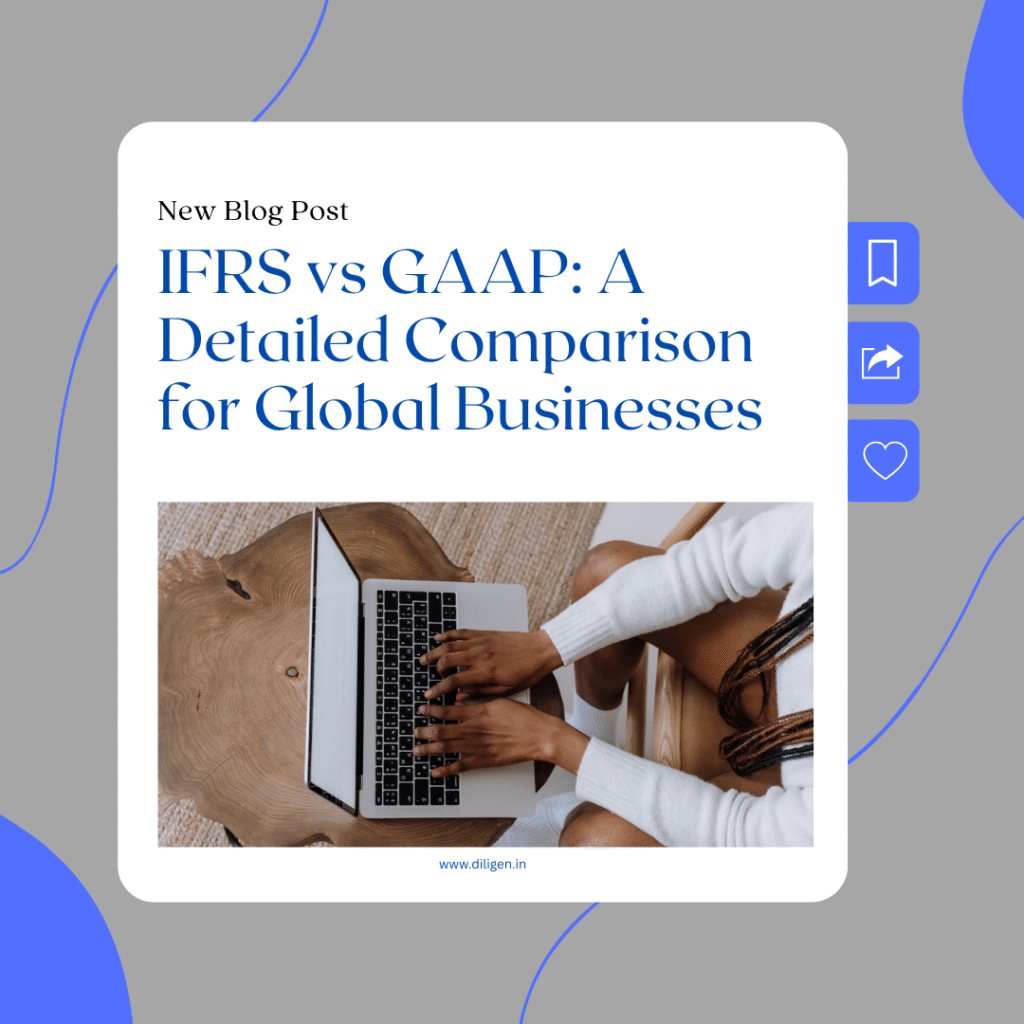IFRS vs GAAP: Key Differences and Which Framework Suits Your Business
Introduction:
In the world of financial reporting, accuracy, consistency, and transparency are paramount. Businesses, investors, and regulators heavily rely on financial statements to make informed decisions. However, the framework used to prepare these statements significantly influences how information is presented. This brings us to the ongoing debate of IFRS vs GAAP—two of the most widely adopted accounting standards in the world.
What Are IFRS and GAAP?
To begin with, IFRS (International Financial Reporting Standards) is a set of accounting principles developed by the International Accounting Standards Board (IASB). These standards are used in over 140 countries, including most European nations, Canada, Australia, and many parts of Asia.
In contrast, GAAP (Generally Accepted Accounting Principles) is primarily used in the United States and is established by the Financial Accounting Standards Board (FASB). It is a comprehensive set of rules and guidelines designed to ensure consistency and comparability in financial reporting.
Why the Comparison Matters
As globalization continues to accelerate, many companies operate across borders. Consequently, understanding the differences between IFRS and GAAP is crucial for multinational corporations, investors, and financial analysts. It not only affects how financials are reported but also impacts taxation, compliance, and investment decisions.
🔍 Key Differences Between IFRS and GAAP
Although both frameworks aim to provide accurate financial information, they differ in several important areas.
1. Principles-Based vs Rules-Based
One of the most notable distinctions is the underlying approach:
IFRS is principles-based, allowing more flexibility and interpretation in applying the standards.
GAAP is rules-based, which means it offers detailed guidelines that reduce ambiguity but can be rigid in certain situations.
This fundamental difference leads to greater professional judgment in IFRS and strict compliance in GAAP.
2. Inventory Accounting
Inventory valuation is another key area of divergence.
Under IFRS, the LIFO (Last-In, First-Out) method is not permitted. Instead, companies must use FIFO (First-In, First-Out) or weighted average cost.
In contrast, GAAP allows LIFO, which can be beneficial for U.S. firms during periods of inflation by reducing taxable income.
3. Revenue Recognition
Revenue recognition rules have gradually aligned, yet nuances remain.
Both IFRS and GAAP now follow a five-step model for recognizing revenue, thanks to the joint convergence project (IFRS 15 / ASC 606).
However, GAAP includes more industry-specific guidance, while IFRS is more general, emphasizing contract performance obligations.
4. Treatment of Development Costs
Development costs highlight another significant difference:
IFRS allows capitalization of development costs if specific criteria are met, reflecting the asset’s future economic benefits.
On the other hand, GAAP typically requires these costs to be expensed as incurred, promoting a conservative accounting stance.
5. Asset Revaluation
The treatment of fixed assets also varies.
IFRS permits revaluation of property, plant, and equipment to fair market value.
In contrast, GAAP mandates historical cost, unless impairment occurs, which may understate an asset’s true value over time.
6. Presentation of Financial Statements
Furthermore, how financial statements are structured can differ significantly:
IFRS requires a classified balance sheet, clearly separating current and non-current items, and a statement of changes in equity.
While GAAP permits more flexibility, it includes detailed disclosures and additional line items, especially for U.S.-based companies.
7. Intangible Assets
Treatment of intangible assets is another area to consider:
Under IFRS, intangible assets can be recognized and capitalized when certain recognition criteria are met.
GAAP is more stringent, often favoring immediate expensing unless tied to specific contractual or legal rights.
🌐 Global Implications
As globalization grows, businesses expanding into new markets must decide which standards to follow. For example:
A U.S. company listing in Europe must restate its financials using IFRS.
Similarly, an Indian firm seeking U.S. investors may need to reconcile its IFRS-compliant statements to GAAP.
This dual reporting leads to increased costs, but also greater transparency and credibility with global stakeholders.
✅ Similarities Between IFRS and GAAP
Despite the differences, both frameworks share common goals:
They follow the accrual basis of accounting.
Both require financial statements to provide a true and fair view.
Each supports the concept of going concern, consistency, and comparability.
📌 Conclusion: Choosing the Right Framework
In summary, the choice between IFRS and GAAP depends largely on geographical location, regulatory requirements, and stakeholder expectations. While IFRS offers greater flexibility and global acceptance, GAAP provides a highly detailed and rule-specific approach, particularly suited for the U.S. market.
As financial landscapes evolve, the harmonization of IFRS and GAAP continues to be a topic of interest. Until then, professionals must remain well-versed in both standards to ensure compliance, accuracy, and strategic advantage in global operations.
📣 Need Help Navigating IFRS or GAAP for Your Business?
Diligen’s Financial Experts offer end-to-end support in preparing, auditing, and transitioning financial statements across both frameworks.
👉 Schedule a free consultation today and make informed decisions with confidence.
📌 Conclusion: Choosing the Right Framework
In summary, the choice between IFRS and GAAP depends largely on geographical location, regulatory requirements, and stakeholder expectations. While IFRS offers greater flexibility and global acceptance, GAAP provides a highly detailed and rule-specific approach, particularly suited for the U.S. market.
As financial landscapes evolve, the harmonization of IFRS and GAAP continues to be a topic of interest. Until then, professionals must remain well-versed in both standards to ensure compliance, accuracy, and strategic advantage in global operations.
No matter which standard your business follows, Diligen’s Professional Experts are here to guide you every step of the way. From preparing compliant financial reports to supporting international expansion, we help you navigate complexities with clarity and confidence.





